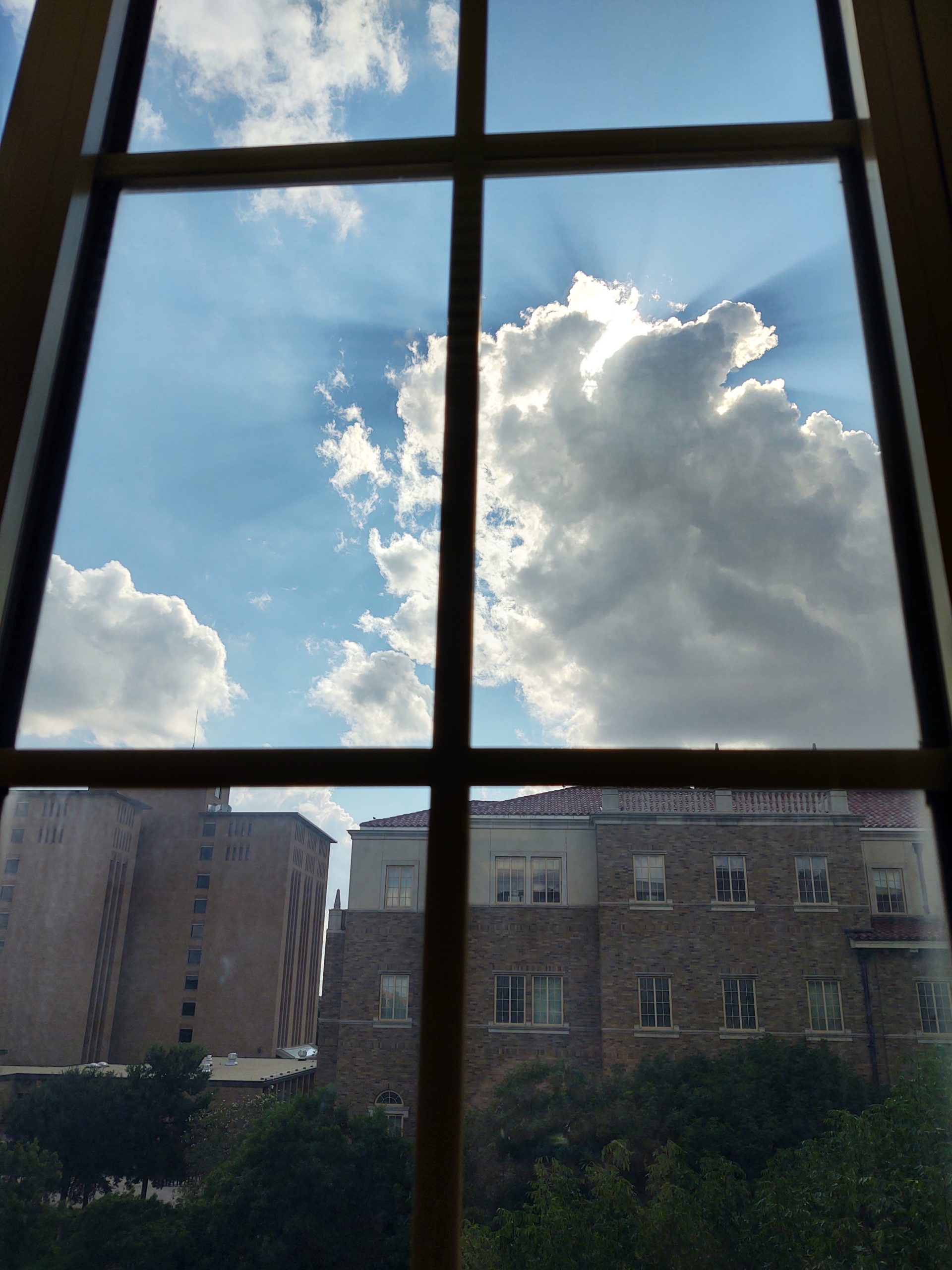Beau Pihlaja | Assistant Professor | Technical Communication and Rhetoric | Department of English | Texas Tech University (TTU)

As my campus plans to return to in-person instruction in the fall 2021, there are several things I will be taking with me from the last year of teaching and surviving into the future. The most significant is a profound sense of where and how and through whom power in a classroom and in an institution flows and can flow. Before the pandemic, I like most, noted the ways power too often protects itself in any situation by laying responsibility on the people it perceives to be below it on the hierarchical ladder—deny though it might that such a ladder even exists. This responsibility shift shows up in classrooms and in talk among instructors—myself included—in both overt and subtle ways. When we blame students, first and foremost, for the failure of any policy, lesson plan, assessment, or assignment to “work,” broadly speaking, we are usually treading very close to this kind of topsy-turvy hierarchy shift (if not engaging outright in it).
As much as I understood this before COVID hit our campus and forced its closure and we were all scrambling online—the pervasiveness of the mentality was frighteningly clear in the weeks that followed. A strange preoccupation with students “not wanting to do the work” or “using the pandemic as an excuse to—” I’m not even sure what…Goof around while the world ended?—persisted. In some cases it felt like the attitude intensified as we all tried to do our jobs while flipping the burden to carry huge swaths of the global knowledge work infrastructure onto workers themselves. Never mind the attendant fact that we were collectively shoving many of those same students out into the pandemic workforce to function as “frontline” workers making in some cases $7.25 an hour and of course our gratitude as a nation for their…um…courage.1
Like many instructors in the early days of the pandemic, I was scrambling to figure out where to set up an “office,” how to accommodate two elementary students’ shift to remote learning online, and (in a panic just a week before we started classes again after spring break) wondering if my home broadband would be “enough” to cope with the sudden uptick in digital engagement. That I was able to cope with all of it—using a spare bedroom (and not my kitchen table) for the office, determining that the 200mbs internet speed was more than enough—was a privilege, not available to everyone, whether colleagues or students.
In the Before Times, the first instance of a student Zooming in from their bed one afternoon in a previous semester’s hybrid course, was slightly annoying but only mildly so. Suddenly every student was forced to connect from their apartments, their cars, parking lots, or whatever spaces remained open. Being autocratic and demanding about how students showed up only highlighted further the asymmetry of the power relations between us, specifically their connections to our shared lives outside the classroom, otherwise normally hidden. It became clear that I had enough personal capacity to bear the infrastructure of my institution willingly2 in a way not shared by my students. Furthermore, I still retained the power to assess through grades and policy. Looking back now, I realize I have spent the last year working to make that asymmetry of responsibility match the power dynamics in any given class and if I was to err it would be on the side of preventing the demands of that responsibility from running downhill.
This showed up in ways small and big. With many of my colleagues around the nation, I stopped requiring cameras to be on in any class, asking only that students engage as best they could in other ways (e.g., in the chat, in small breakout groups). Students were never required to ask permission to be absent, only to let me know what they needed to complete work when they missed a class or assignment. But most substantively, I shifted to a purely labor-based approach to assessment using a syllabus my friend Dr. Lizbett Tinoco graciously shared with me. Taking my cue from Asao Inoue’s (Inoue, 2015, 2019) work as well as Dr. Tinoco’s work along with her colleagues (Tinoco et al., 2020), students only had to complete coursework—including any revision or reflective self-evaluation work—to attain the typical grade distribution.
I had been trending towards a change like this beforehand, but the conditions that developed under the pandemic made it abundantly clear why the high stakes, hyper-competitive culture in which grades are singularly legible was absurd and had no place under these conditions. I’m convinced that they make even less sense in its wake. Yes, there are situations where more typical, stringent, time-bound assessment processes might be necessary and pedagogically useful. The writing courses I teach are not such a place. It’s not at all clear to me that the rigor of the courses waned as we still wrestled with complexity, students still revised and reflected on the precision of their work, and we did the messy work of connecting our classroom practice and discussion to thinking and work outside the institution. Regardless, it is important to note that the flexibility worked into the process likely enabled some students to still do the work at all.3 As an instructor at a public institution, I counted this as a particular point of personal success.
This change in how students and I relate to coursework has in one way made more work for me, certainly, and I won’t pretend I managed it all exceptionally well in every instance. But at least the responsibility distribution felt appropriate, indeed more humane. I wasn’t feeling compelled to surveil my students’ participation, barking at undergraduates to pay attention and respond to my questions from their corner of a two room apartment with a friend or lover sitting in the background watching TV or chatting on the phone—in some case while the power also flickered on and off as it did for students in the large swaths of Texas when the electrical grid strained beneath record low temperatures in February of 2021 —all so I could feel like I was meeting the responsibilities for which I was paid.
If it wasn’t clear before, it should be now: Institutions of higher ed must account for the material conditions under which they are asking people to work and learn. Institutions of public education must pay particularly special attention to the communities in which they have been tasked to serve. The post-hoc rationalizations nationally for our collective minimization—if not outright dismissal—of students’ material struggle even when the world was ending were for me truly apocalyptic in the original sense of the term (Greek: a revelation, uncovering, disclosure). Having been confronted by these operations of nihilistic commitment to productivity and output and the performance of hustle amidst a (still ongoing) global catastrophe, I can’t unsee them.
There is much that happened in the pandemic that I did not and still do not know how to deal with in the classroom. Acknowledging the extraordinary political events of 2020-2021 that occurred amidst and frankly were exacerbated by the pandemic was one of those things. The upheaval that culminated in the insurrectionary violence in the nation’s capital on January 6th, 2021 may very well only intensify, especially here in Texas, as public education becomes a point of sharp contestation. I gained no insight from the last year on this point. At most, I realized that a larger percentage of the population’s commitment to connecting words to shared realities was weaker than I’d believed possible.
Regardless, in the absence of large-scale changes to how we organize and value one another in society, labor-based assessment was a small way to help students in my domain of responsibility cope with the asymmetry of material distribution, kept power and responsibility much more appropriately aligned, and is something I’m going to carry with me into the future as an instructor.

Endnotes
1 One student contacted me when their work in class was delayed to inform me they had finally gotten a job—a need about which we’d spoken before the pandemic and a fact we would have simply celebrated together had it not been a low-level position in a hospital and therefore at ground zero for the virus’s most significant impact.
2 For the most part. I wasn’t happy about having to pay for a parking spot at my place of employment before COVID hit, I’m not much more thrilled about having paid for it to sit almost entirely unused for the past fifteen months. Grim humor aside, Melissa Johnson, tweeting (@Lady_Historian), noted that this asymmetry in having to bear the infrastructural weight of teaching on such a large scale was novel on the tenure track yet is in fact the ongoing reality for adjunct instructors and has been for some time.
3 If we reject the premise that ”teaching” involves some obligation to ”weed out” but instead must meet students where they are at cognitively, materially, and socially, then the fact that ”everyone passed” is in no way a mark of failure on the part of the instructor or course design. It is a point of personal pride that in the shift to the hybrid environment in the spring of 2020 every undergraduate who remained in the course managed to pass the course with a ”C”—while maintaining a consistently applied set of expectations for everyone in the course. Students may have had many problems—material, cognitive, emotional, physical—in the wake of that spring semester. I was intent that a failing grade in my class they then would have had to clean up or re-take or shift to ”pass/fail” (an option provided by my institution and one I supported though I may have preferred others) would not be one of them.
References
Inoue, A. B. (2015). Antiracist writing assessment ecologies: Teaching and assessing writing for a socially just future. Parlor Press.
Inoue, A. B. (2019). Labor-based grading contracts: Building equity and inclusion in the compassionate writing classroom. WAC Clearinghouse; Colorado State University.
Johnson, M. [@Lady_Historian]. (2021, July 15). Almost every day, I remember the beginning of Covid closures when TT folks started complaining that universities expected them to provide their own internet and office space for teaching with no extra comp, and now literally no one cared that adjuncts were doing that all along [Tweet]. https://twitter.com/Lady_Historian/status/1415710441154629632
Tinoco, L., Eddy, S. B., & Gage, S. (2020). Developing an antiracist, decolonial program to serve students in a socially just manner: Program profile of the FYC program at Texas A&M University-San Antonio. Composition Forum, 44. https://compositionforum.com/issue/44/tamu-sa.php
